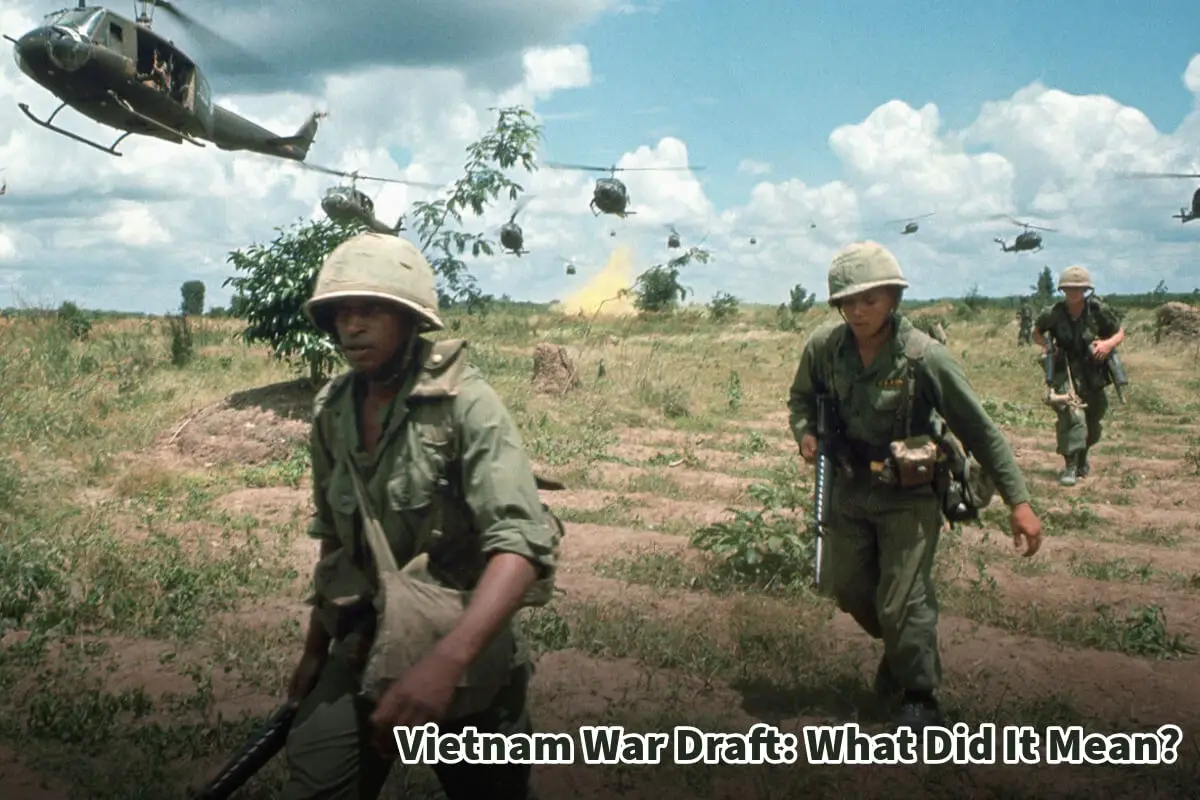Many Americans have heard of or are familiar with the Vietnam War, often through various means such as history lessons or family stories. One of the most contentious aspects of the war was the military draft.
The Vietnam War draft was particularly unpopular because it led to the forced enlistment of young men who had no desire to participate in the conflict. The consequences were dire: lives were disrupted, and many died. Read on to learn more about why the Vietnam War draft was so controversial and what it meant for Americans at the time.
Table of Contents
- The Vietnam War Draft: Understanding Its Impact
- 10 Reasons The Vietnam Draft Was Problematic For Many Americans
- Related Questions
The Vietnam War Draft: Understanding Its Impact
During the Vietnam War era, approximately two-thirds of the American soldiers who served were volunteers. The remaining one-third were conscripted through a military draft administered by the Selective Service System.
In the early stages of the conflict, the names of eligible American men were collected by the Selective Service System. When an individual’s name was selected, he was required to appear before his local draft board, a group of members from the local community.
These boards had significant authority to determine who would be drafted and who would remain exempt. Socio-economic factors often influenced the power wielded by local draft boards.
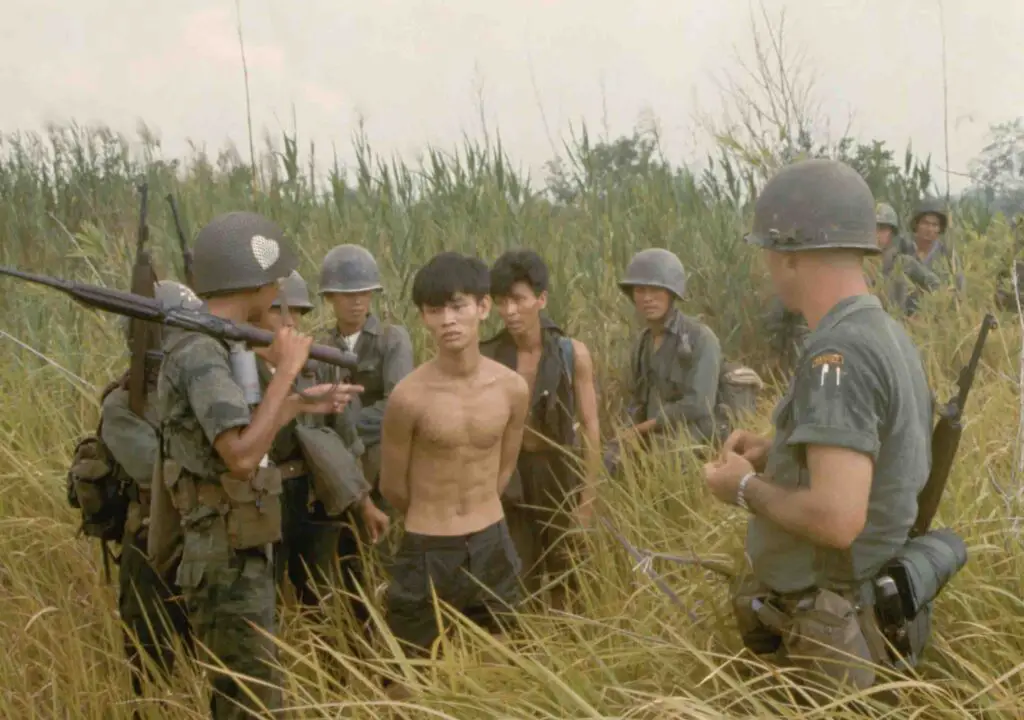
Those serving on these boards frequently faced pressure from affluent or influential individuals to grant exemptions. Consequently, a majority of the men drafted came from disadvantaged socio-economic backgrounds.
These draftees typically lacked the resources to secure a college deferment, influence from political connections, or medical exemptions from a family physician. The makeup of the American troops in Vietnam was predominantly working-class (55%), with 25% identified as poor and the remaining 20% coming from middle-class backgrounds. The soldiers hailed mainly from urban or agricultural regions.
Protests And Changes In The Draft System
Public criticism over the draft’s unfairness led to a significant change on December 1, 1969. On that day, the Selective Service System initiated two lottery drawings—marking the first such lotteries since World War II—to decide the order for draft-eligible men (born between 1944 and 1950) to report for potential induction in 1970.
The lottery operated on a birth-date system, assigning numbers to each date in the year, including February 29. Men with lower numbers faced a higher likelihood of being called for service.
These lotteries continued through 1970, 1971, and 1972. They ended with signing the Paris Peace Accords in January 1973, which effectively ceased active American involvement in Vietnam. The final draftees were conscripted on December 7, 1972.
Statistical Overview And Legacy
According to the National Archives, about 27 million American men were eligible for military service from 1964 to 1973. Of these, around 2.2 million were drafted, while approximately 15 million received deferments, primarily for educational reasons or due to physical or mental impairments.
Furthermore, the era saw over 300,000 instances of draft evasion. Roughly 210,000 men illegally resisted the draft, and approximately 100,000 deserted.
A notable number, around 30,000, sought refuge in Canada between 1966 and 1972. In a controversial move, President Jimmy Carter granted full pardons to draft dodgers on his first day in office in 1977.
The Vietnam War draft remains a highly contentious aspect of American history, evoking debates on social inequality, governmental power, and the ethics of mandatory military service.
10 Reasons The Vietnam Draft Was Problematic For Many Americans
The Vietnam War and the Vietnam War draft was a problem for many Americans. The draft led to widespread protests throughout the United States.
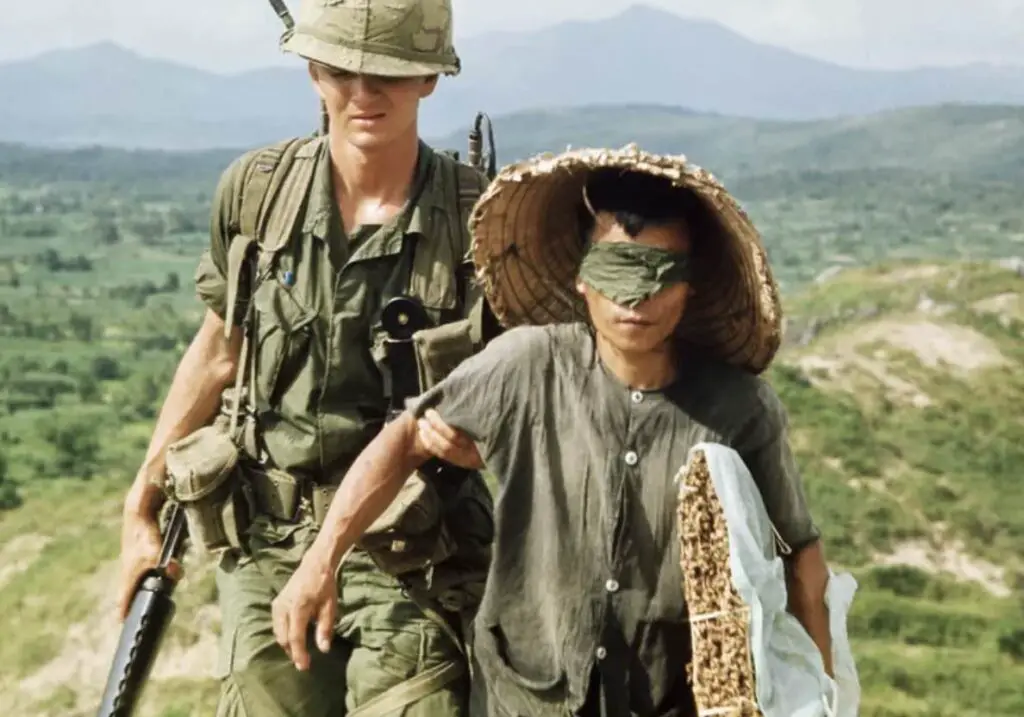
Read on as we list out ten reasons why the draft was a problem for many Americans:
Socio-Economic Inequality:
The draft disproportionately affected lower-income and working-class families, as they often lacked the resources to secure deferments. This led to an unfair burden on specific segments of society, amplifying existing socio-economic disparities.
Ethical And Moral Concerns:
Many people morally opposed the Vietnam War, and the draft forced them to either participate in a conflict they found unethical or face criminal charges for evasion, which could include imprisonment.
Racial Inequality:
There were allegations that the draft process was racially biased. African American and Hispanic men were disproportionately drafted and sent to fight, exacerbating racial tensions and inequalities at home and abroad.
Political Manipulation:
Wealthy and influential families sometimes used their resources or connections to secure deferments for their children, creating a system that favored the privileged and well-connected over everyday citizens.
Disruption Of Lives:
Young men had to abandon their education, jobs, and families on short notice. This abrupt interruption often had long-lasting repercussions on their careers and personal lives.
Public Protests And Civil Unrest:
The draft was a significant factor in sparking protests and civil disobedience. This led to a polarized society and, in some instances, violent confrontations between protestors and law enforcement.
Questionable Legality:
The constitutionality and legality of the draft were subjects of intense debate. While the U.S. government maintained that it was necessary for national security, critics argued that it violated individual freedoms.
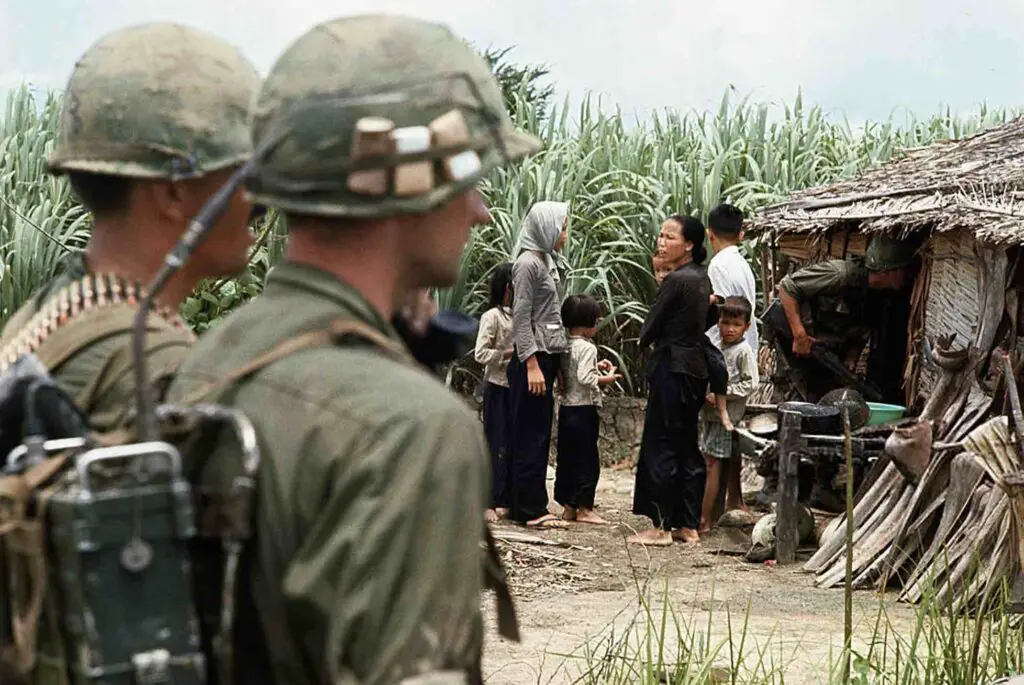
Mental And Emotional Toll:
The looming threat of the draft created widespread anxiety among eligible men and their families. Not knowing if or when they would be called to serve was emotionally draining.
Tarnished International Image:
The draft and how it was conducted drew international criticism. It fueled anti-American sentiments and was often cited as a human rights concern.
Legacy Of Division:
The draft left a lasting scar on the American psyche, contributing to distrust in government and the current political, racial, and socio-economic divisions.
The Vietnam draft was more than just a means of military conscription; it became a focal point for broader societal issues that the United States grappled with during this tumultuous period. This draft has left an enormous stain on America and the American people for many years.
Listen To Our Podcast About The Vietnam War Draft – Unpacking Its Impact Below or By clicking here.
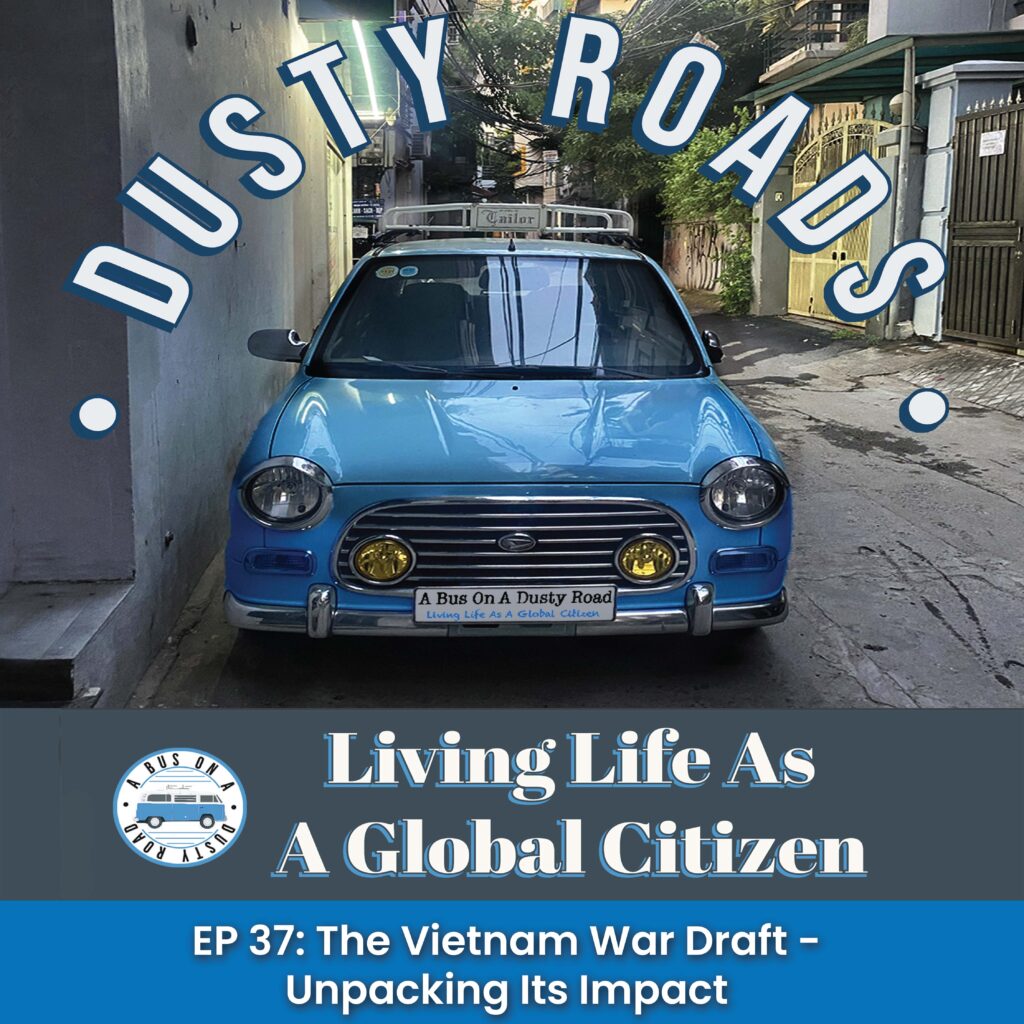
At A Bus On A Dusty Road, we talk about history, travel, life, sailing, and ex-pat living. We are all about “Living Life As A Global Citizen.” We explore social, cultural, and economic issues and travel.
We would love to have you be part of our community. Sign up for our newsletter to keep up-to-date by clicking here. If you have any questions, you can contact me, Anita, by clicking here.
Listen to our Podcast called Dusty Roads. You can find it on all major podcast platforms. Try out listening to one of our podcasts by clicking here.
Subscribe to our A Bus On A Dusty Road YouTube Channel with great videos and information.
Related Questions
What U. S Companies Profited During The Vietnam War?
During the Vietnam War, many U.S. companies profited from the Vietnam war. Some of these companies were heading toward bankruptcy, but their involvement in the Vietnam war helped make them profitable. For many others, they earned millions of dollars each year in profits from the war that helped ensure they continued to be successful or even thriving companies.
By clicking here, you can discover What U. S Companies Profited During The Vietnam War?
Could America Have Won The Vietnam War?
America could not have won the Vietnam war as it never won the hearts and minds of the Vietnamese people. The Americans even had difficulty controlling the Vietnamese people in Southern Vietnam, as many were disillusioned with the Southern Vietnamese government. Ho Chi Minh, the leader of North Vietnam, fully understood that another foreign power would not control the Vietnamese heart and soul.
By clicking here, you can discover Could America Have Won The Vietnam War?
What Was The Main Reason For US Involvement In Vietnam?
The main reason for the involvement of the United States in the Vietnam War was the belief in the Domino theory; the Domino theory was a principle used to describe the effects on the world if Vietnam fell to communism. The idea was that if Vietnam became communist, the rest of Asia, New Zealand, and Australia would eventually become communist. At the time, American leaders felt they were fighting for the survival of democracy throughout the world.
By clicking here, you can learn more by reading What Was The Main Reason For U.S. Involvement In Vietnam?

